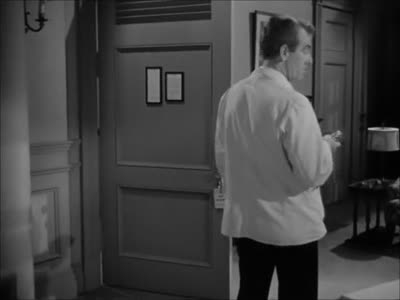The Lavender Hill Mob (1951, UK, Crichton)
In jolly England, crime is a game for poor, but enterprising gentlemen. Even your local safe cracker is a decent chap, all in all, and any gentleman can become a bank robber, if they put their mind to it. Watched it all. Alec Guinness can add or remove 20 years with a twitch of a facial muscle. What an actor. Come to think of it, yes, it is a bit unfair that he will go down in movie history as “that old guy in Star Wars”.
Double Dynamite (1951, USA)
Please stop putting Marx brothers in movies now. It’s embarassing to watch, and must have been even more embarassing for them. Watched: 3 minutes, then fast-forwarded to see if Groucho has any funny lines. He doesn’t.
Fourteen Hours (1951, USA, Hathaway)
The way I do this marathon, I’m naturally biased in favor of movies with great openings. This is one of them, (above). The quiet streets, no words, and then, suddenly – the man on the ledger, ready to jump. And the rest follows from there, intense and compressed like a filmed play. Sometimes that doesn’t work, but I love it when it does. Watched it all.
The Red Badge of Courage (1951, USA, Huston)
I don’t necessarily approve of long movies, but even I understand you can’t do an American Civil War epic in 70 minutes. Watched: 5 minutes, then fast-forwarded to see the final battle scene, which looks amazing.


